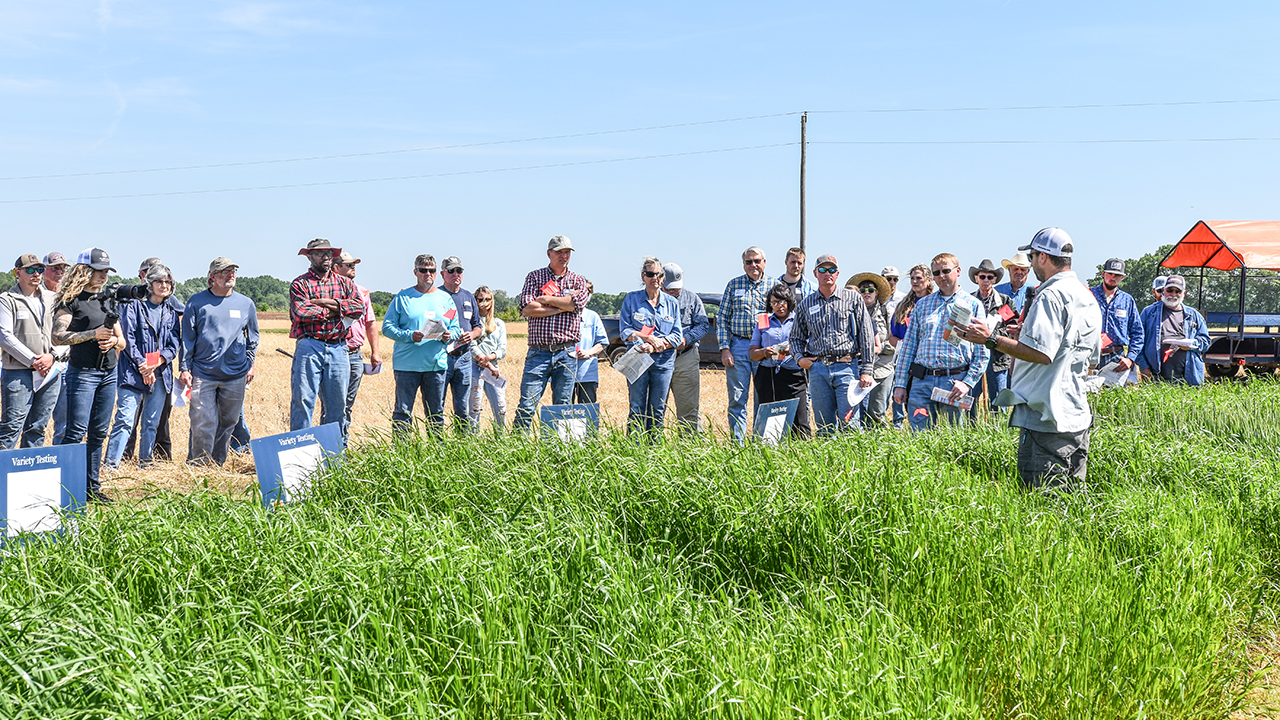Auburn University
Variety Testing Program

Variety selection is the most important decision a farmer can make. If farmers want to be successful, they must ensure that they plant varieties that are well adapted. If a farmer selects the wrong variety, the results can be catastrophic. Typically, farmers do not have the resources to conduct variety trials in addition to their normal growing season activities.
Variety evaluation is also critical to plant breeders, both from universities and industry. Prior to releasing a new variety, these breeders typically evaluate their lines in independent variety trials. This ensures that they have unbiased data from multiple years and locations to support the release of their new variety.
The mission of the Auburn University Variety Testing Program is to provide research-based, unbiased results on the performance of various crop hybrids, cultivars, and varieties to the agricultural community in Alabama. We are intent on conducting these trials in a manner that will result in maximum biological yield through methods common to the top-producing farms in Alabama.
We are committed to providing this information in a timely manner for its use during the decision-making process. The success of the program rests on our ability to help Alabama producers provide a safe, dependable source of food and fiber for all families as well as an economic sustainability for theirs.

Henry Jordan
Variety Testing Manager, Research Associate IV
Subscribe to AU Variety Testing Updates
Annually, the Auburn University Variety Testing Program conducts trials on corn, cotton, soybeans, peanuts, grain sorghum, wheat, barley, oats, triticale, small grain forages, and ryegrass.
Trials are conducted on Auburn University owned and operated agricultural research stations across the major geographical regions of the state. The research conducted at each of these locations can provide stakeholders with data that can be more representative of their growing conditions.
VARIETY CATEGORIES
Performance of Soybeans in Alabama, 2025
November 25 – Results are now available for the Marshall County on-farm soybean trial.November 21 – The following yield results are available. BARU MG4 MG5 MG6 MG7/8 GCREC MG4 MG5 MG6 MG7/8 November 13 – The following yield results are available. EV Smith Research...
Performance of Small Grain Varieties in Alabama, 2024-2025
August 11 - Grain quality results are available for the following trials. TVREC Wheat TVREC Triticale BARU Wheat August 5 - Wheat grain quality results are available for the following locations on the variety selection tool. Under the trial page, look at the quality...
Performance of Winter Forages in Alabama, 2024-2025
September 9 - Forage quality results are available (variety selection tool only) for all five SMREC forage OVTs.August 13 - Forage quality results are available (variety selection tool only) for the CREC oat and triticale OVTs. July 31 - Forage quality results are...
Performance of Cotton Varieties in Alabama, 2024
January 31, 2025 - On-Farm results are available. January 13, 2025 - Classing (quality) results are available for the WREC Short Season Irrigated OVT. This should be the last set of OVT results for the 2024 season. January 9, 2025 Classing (quality) results are...
Performance of Peanut Varieties in Alabama, 2024
January 29 - Peanut seed size recorded at time of harvest is available for all five OVTs. December 19 Peanut grades (quality results) are available for all 5 peanut OVTs. A summary table for loan value has been added. This is based on grade/quality results alone....
Performance of Soybeans in Alabama, 2024
December 18 - Results are available for: BARU trial management has been updated Black Belt Research & Extension Center (BBREC) in Marion Junction High IDC -Sumter Soil IDC ratings and yields were highly correlated Maturity Group 4 Maturity Group 5 Maturity Group 6...



